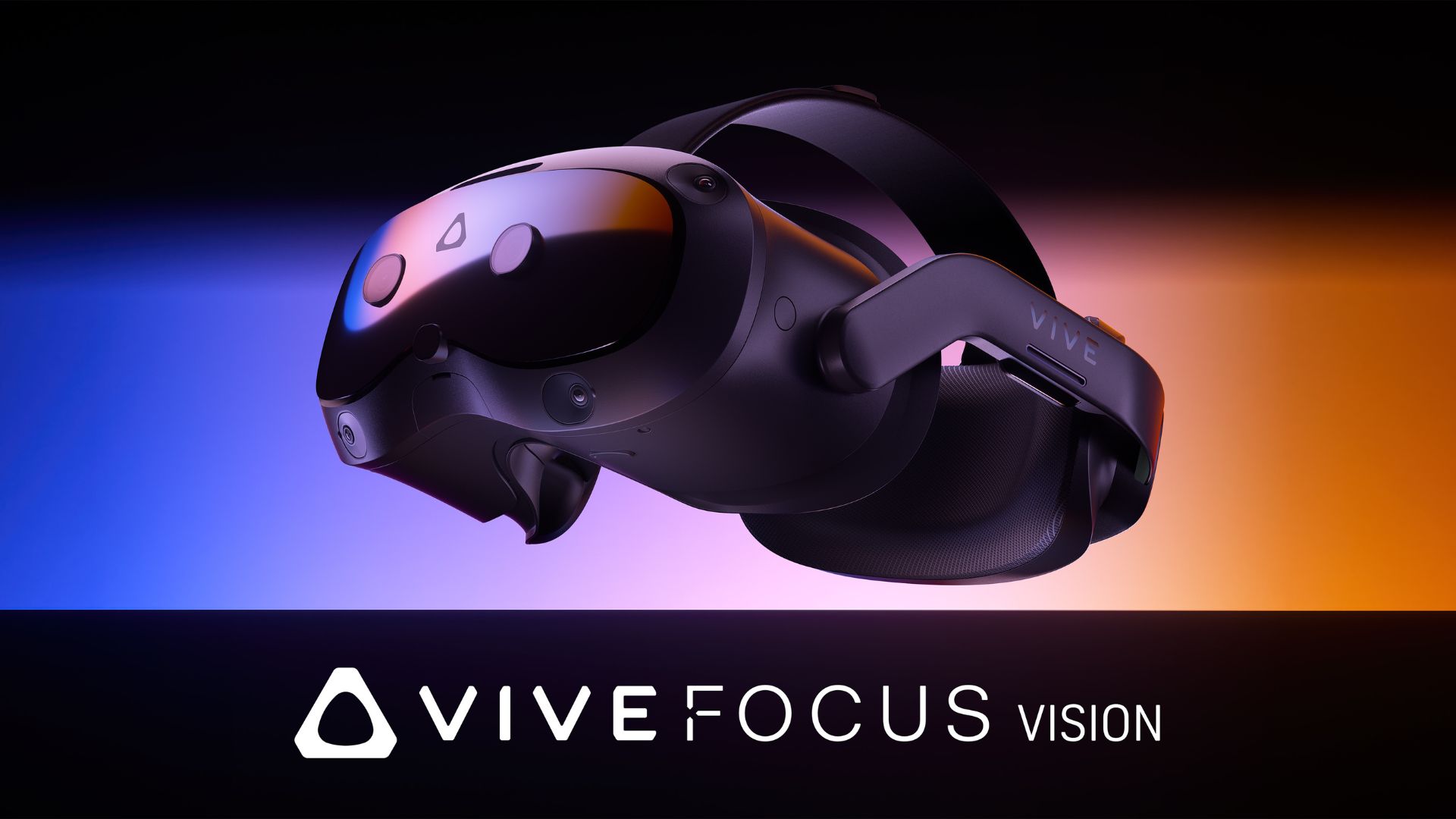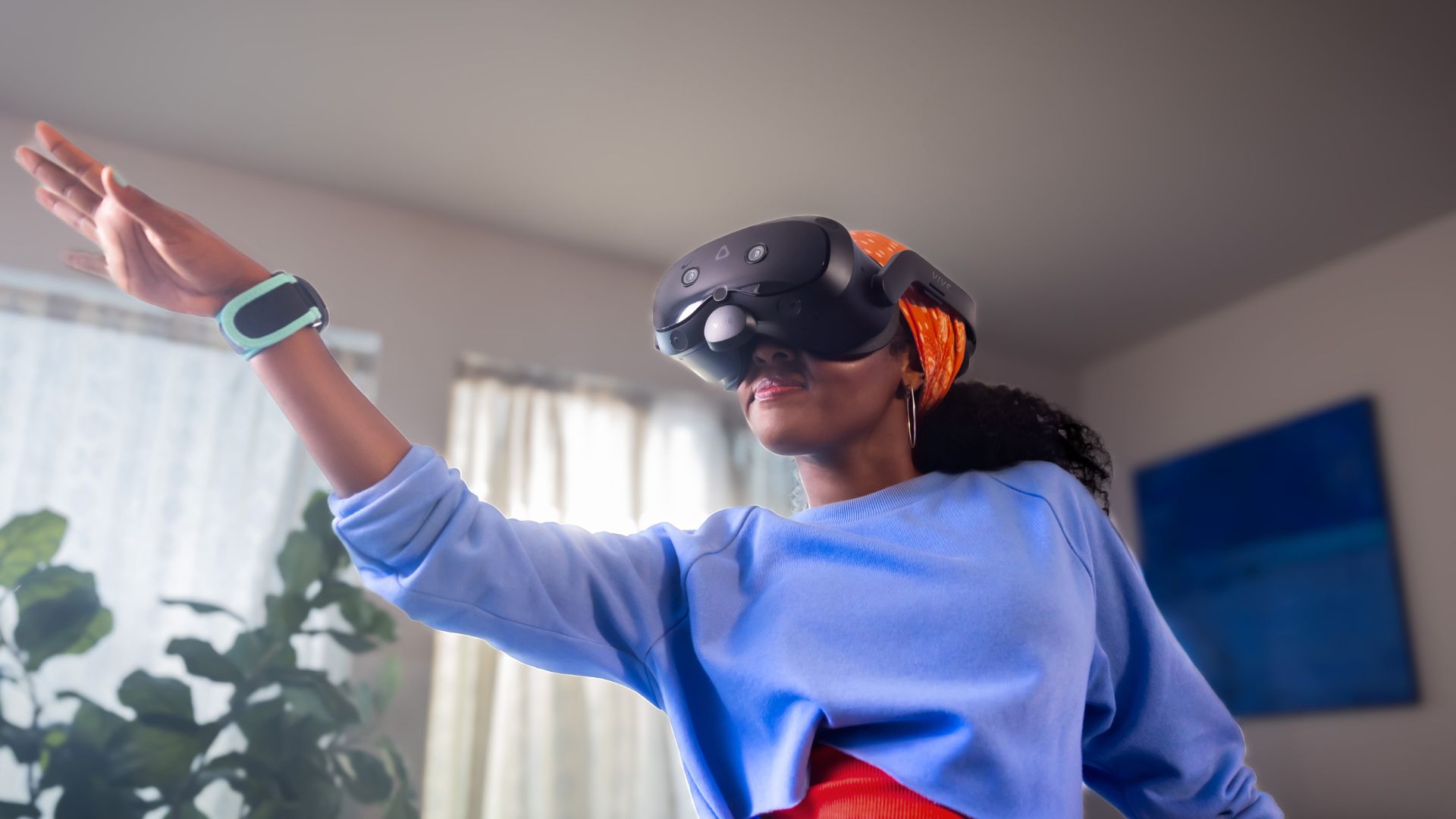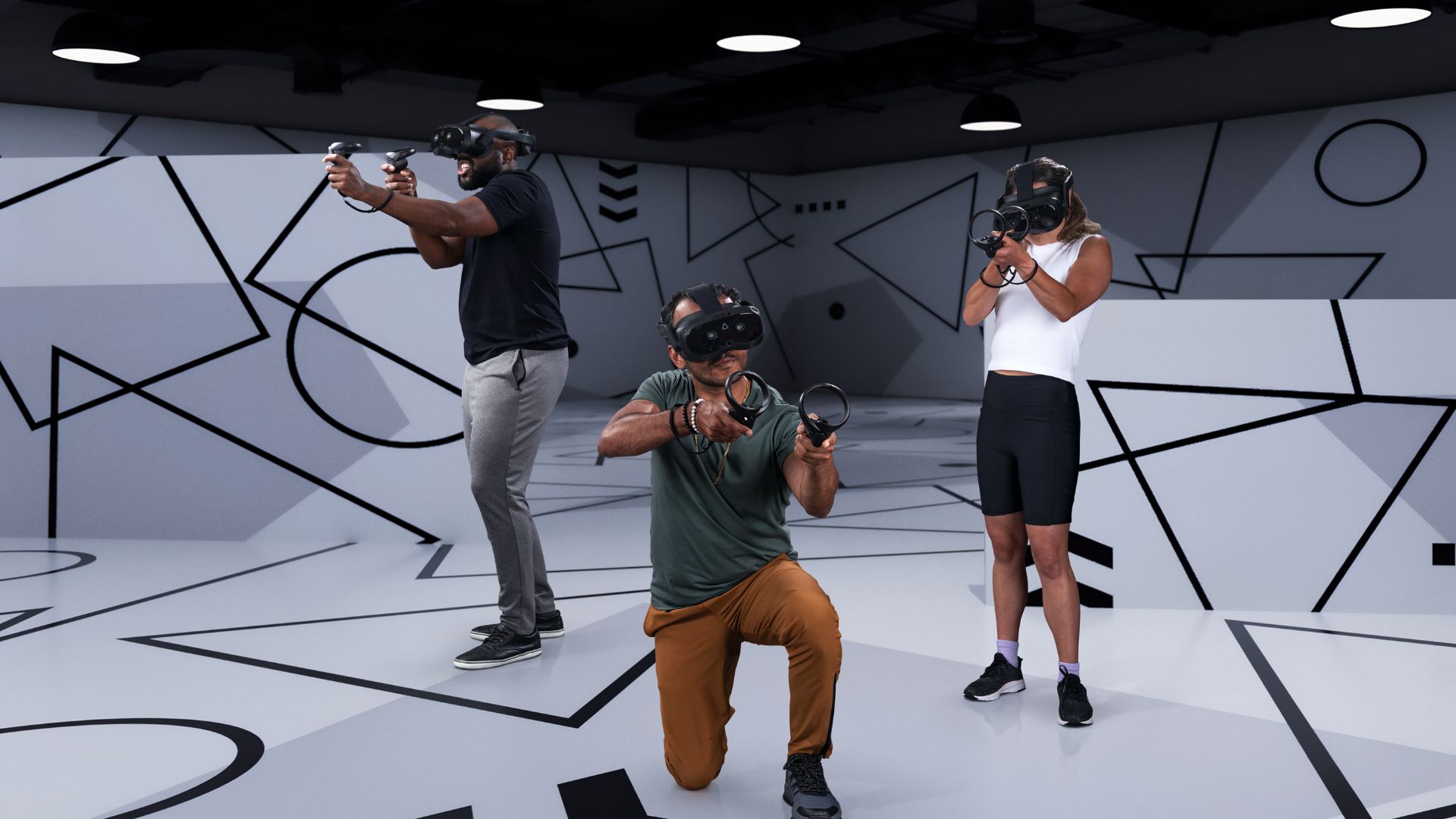HTC Vive's next VR headset feels like a sequel to one of the best ever made
DisplayPort, Hot-swappable battery packs, and automatic IPD adjustment await...

It feels like a long time since we've had a new HTC Vive VR headset to get excited about, and it feels even longer since the brand has launched a device specifically designed for VR gaming on a PC. In the years since the HTC Vive 2 Pro and the HTC Vive XR Elite released, HTC's main focus has been the enterprise market, but it's now coming back to gamers with what seems like a truly brilliant device.
The HTC Vive Focus Vision is a standalone mixed-reality headset, but don't let that fool you. This feels more like a successor to what we deem one of the best VR headsets ever made for PC gaming, the HTC Vive 2 Pro.
The Vive Focus Vision has one of the most stacked spec sheets I've seen in a standalone device like this, even compared to the Pico 4 Ultra which takes the Meta Quest 3's specs a step further. It has a pixel-per-eye density of 2248p, two eye-tracking cameras, automatic IPD adjustment, and a 120-degree field of view.

When in standalone mode, it shares the processor used by the Meta Quest 3, the Qualcomm Snapdragon XR2. This will be aided by 12GB of RAM, supported by 128GB of storage, that will all power a display with a 90Hz refresh rate. HTC Vive has really thought about how it can one-up the competition though, and it's done so with clever design. 128GB of storage may seem small, but MicroSD card support means you can upgrade the storage if you want more room for games. Similarly, 90Hz may not seem all that competitive, but this headset has been designed with DisplayPort connectivity in mind for PC gaming. When hooked up to a computer in this way, its display is capable of a 120Hz refresh rate.
Connecting a headset like this directly to one of the best graphics cards means you won't suffer any image compression like you would with a USB-C connection when playing on a PC. For enthusiast SteamVR users, this headset could well be the new go-to choice, since the Quest 3, Pico 4 Ultra, and even PSVR 2's PC adapter all use a form of USB-C connectivity.
HTC Vive's Global Head of Product, Shen Ye, said “Now, PC gamers can bring the same high-end headsets used in VR arcades into their homes. We’re taking everything to the next level with built-in eye-tracking, stereo color passthrough cameras for depth-correct Mixed Reality, and even an infra-red sensor for enhanced hand tracking in low-light conditions."

Impressively, you'll also be able to quick-swap the Focus Vision's battery thanks to detachable battery packs that each have two hours' worth of continuous playtime. In a nice quality-of-life bonus, the headset has four indicator LEDs that convey how much battery life you have left - similar to some of the best Meta Quest accessories. Howtswapping battery backs in a pinch sounds easy because there's a built-in reserve battery that can keep your headset in an extended standby mode for up to 20 minutes.
Weekly digests, tales from the communities you love, and more
As the brand's head of product stated, you won't need to use tracking modules here like with the Vive 2 Pro. The Focus Vision has four integrated tracking cameras and two full-color 16MP passthrough cameras for mixed-reality prowess. There's also an infrared floodlight to help with tracking, a proximity sensor, and depth-sensing capabilities.
You may be starting to worry about how much this will all cost. Surprisingly, the HTC Vive Focus Vision has stayed true to the cost of the Vive 2 Pro, launching at a price of $999.99 / £999.99. It's available for pre-order today, but I haven't been given a concrete date when the device will ship to early buyers.
Pre-orders include a Vive Wired Streaming Kit for DisplayPort Mode for no extra cost, and you'll get a choice of one of three popular game bundles as a complimentary package.
Need a rig to hook a headset like this up to? Check out the best gaming PCs, the best Alienware gaming PCs, and the best gaming laptops.
One of my earliest memories is playing SuperMario64 and wondering why the controller I held had three grips, but I only had two hands. Ever since I've been in love with video games and their technology. After graduating from Edinburgh Napier University with a degree in Journalism, I contributed to the Scottish Games Network and completed an Editorial Internship at Expert Reviews. Over the last decade, I’ve been managing my own YouTube channel about my love of games too. These days, I'm one of the resident hardware nerds at GamesRadar+, and I take the lead on our coverage of gaming PCs, VR, controllers, gaming chairs, and content creation gear. Now, I better stop myself here before I get talking about my favourite games like HUNT: Showdown, Dishonored, and Towerfall Ascension.


